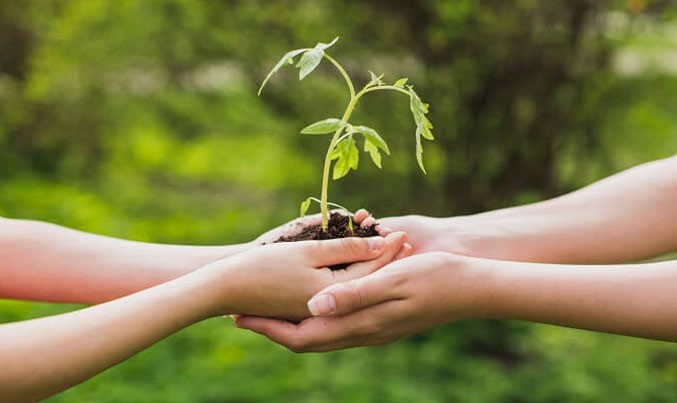It has been expected by many that Non-Governmental Organizations (NGOs) either lead or participate in international development projects. Up to date, NGOs worldwide are still struggling to acquire international development grants. It is seldom that grants for international projects are up and running all at the same time, and hence, given the tiny amount of funding agencies at a given time frame and numerous NGOs aiming to receive a grant, receiving one would be challenging. Being constantly updated and meeting deadlines are crucially important, as it is rare to find grants that are open all year round. In this article, we will provide international grants in the past who had successfully funded several NGOs.
FP2020's Rapid Response Mechanism
Although a current, FP2020's Rapid Response Mechanism is on hold and not accepting applications. Back in 2016, they were one of the few organizations who did not implement deadlines for their application. By 2020, this organization dreams that women and girls are already educated in terms of their reproductive systems. They should be open to contraceptives because not doing so will result in unplanned pregnancies which will put them in situations they aren't prepared and equipped for.
The organizations they have partnered with mostly received grants below USD 100,000 but had promising results in their focus areas. Keeping an eye on this organization until applications will be accepted again should be a good idea.
Addressing Root Causes Fund
The Addressing Root Causes Fund is a fund by the government of the Netherlands which aims to provide maintenance for the poorest of the poor. The families and individuals this agency would like to help are those who live in areas with armed conflict or those who don't have permanent homes and are constantly required to migrate. Last 2016, they encouraged NGOs and other organizations to apply for the grant as long as the projects they wish to implement programs that will benefit the following countries: Afghanistan, Pakistan, Jordan, Lebanon, Syria, Ethiopia, Somalia, Sudan, South Sudan, Mali, Burundi and the Democratic Republic of the Congo. Those who wished to support the inhabitants of other countries had to apply for their grants in other organizations.
NGOs should check the government of the Netherland's website on a regular basis as the Addressing Root Causes Fund may no longer be available, but many other funds for other programs are. Programs such as the Women, Peace, and Security Grant, and the Human Rights Fund are only two of the many other funds NGOs can still apply for.
DFID LEGEND Challenge Fund
Under the United Kingdom Department for International Development (DFID) is the Land Portal Foundation which back in 2016, was accepting applications for their LEGEND Challenge Fund. The proposals they were seeking to help were those involved in land governance, which they believed that if improved, will inherently progress the lives of many underprivileged inhabitants, particularly the women. The UK's DFID entertained organizations seeking for grants for international development projects and approved grants between EUR 100,000 to EUR 750,000, which are supposedly not just going to improve income, strengthen partnerships as well which will inevitably decrease conflicts.
The UK's DFID is still up and running to this day, and if you take a look at their website, they have a list of 45 funds, 40 of which are open. They also have a very organized system for you to find out if your organization is eligible, the selected countries that grants are available in, and other information to determine if they're the right organization to partner with.
Small Grants Fund from the Global Forest Watch
Also in the year 2016, the Global Forest Watch (GFW) acted like funding agencies for project proposals. The grants they provided to the approved applicants ranged from USD 10,000 to USD 40,000, depending on the organization's needs and potential to achieve their goals. The proposals GFW were eyeing to receive were those relating to journalism, research, community forest management, and conservation projects.
GFW is an organization that provides online forest monitoring who focuses on sustainable management and conservation. Every now and then, they still provide small grants for interested organizations who can provide and implement proposals that can be helpful in conserving many resources. Similar to the other organizations, at present, keeping an eye on this one can open doors to grant opportunities
Open Society Initiative for Southern Africa
Innovative programs in Southern Africa was the focus of the Open Society Initiative for Southern Africa (OSISA) back in 2016. During that time, they were eyeing on projects that involved slowly addressing the occurring problems in Southern Africa such as poverty, inequality, exclusion, and discrimination. Unlike many organizations, OSISA accepts and is willing to consider proposals from unregistered NGOs who aren't developed yet. This organization believes that providing grants for the projects unregistered NGOs will help the NGOs develop further.
Applying for an OSISA grant takes four simple steps, as directed on their official website. For the period of 2017-2020, their main focus areas are democracy and governance, economic and social justice, human rights, rule of law and access to justice, natural resource governance, women's rights, and youth, arts, and culture. If your organization has proposals on the following areas, it would be great to take a look at their website where they have displayed the four steps to apply for a grant.
As an NGO, you should be responsible to keep your organization updated on available grants not just from the five organizations mentioned above, but other organizations as well. Still, things can get pretty confusing.
Luckily, researchers have put together a list of open grants for your organization to determine which would be suitable for them to apply for. For a more at ease method in searching for grants, it is suggested to subscribe to channels like AsianNGO not only to live up to people's expectations of NGOs but to ultimately reach the goals the founders of each NGO have set.











